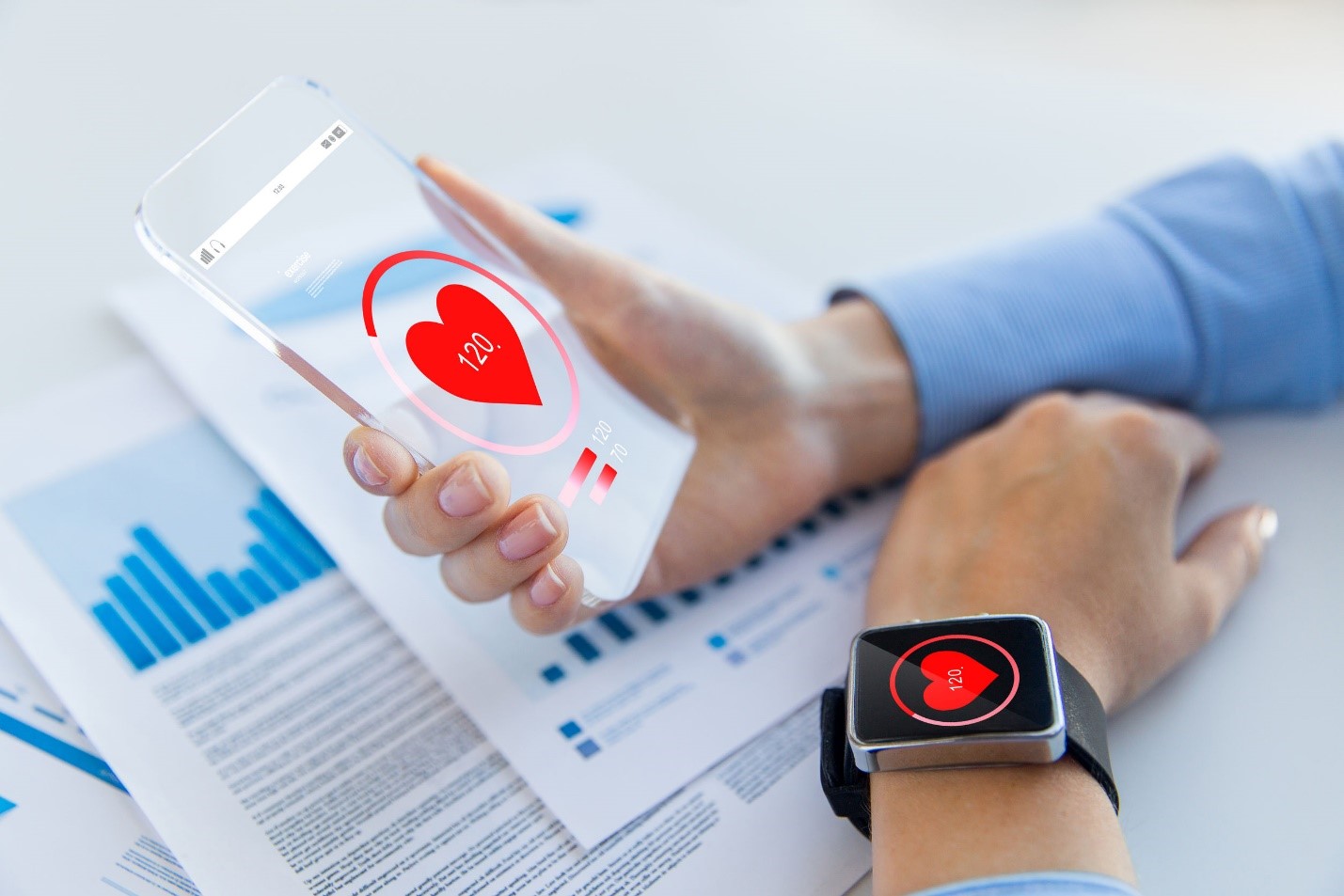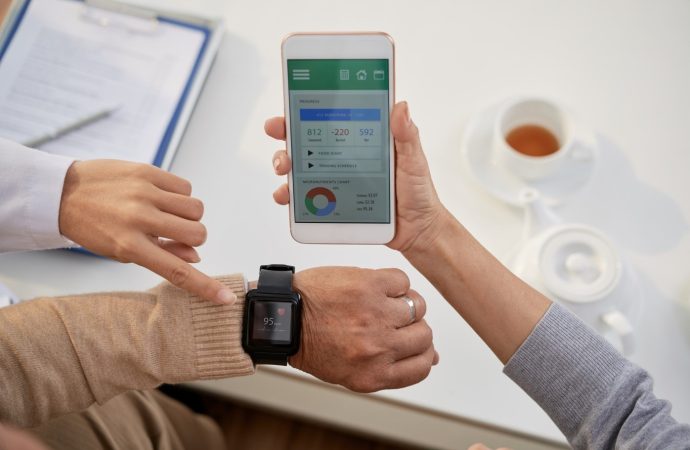In recent years, wearable technology has emerged as a transformative force in the realm of personal health monitoring. Devices such as smartwatches, fitness trackers, and even smart clothing have evolved beyond simple gadgets into sophisticated health management tools. This revolution in wearable tech health is changing how individuals monitor, understand, and manage their well-being. The
In recent years, wearable technology has emerged as a transformative force in the realm of personal health monitoring. Devices such as smartwatches, fitness trackers, and even smart clothing have evolved beyond simple gadgets into sophisticated health management tools. This revolution in wearable tech health is changing how individuals monitor, understand, and manage their well-being.
The Rise of Wearable Tech in Health Monitoring
Wearable technology has come a long way since the first pedometers and heart rate monitors. Today’s devices are equipped with advanced sensors and algorithms capable of tracking a wide range of health metrics in real-time. The global market for wearable health devices is booming, driven by consumer demand for more personalized and proactive health management solutions.
Key Features of Modern Wearable Health Tech
- Heart Rate Monitoring: One of the most common features in wearable tech health devices is heart rate monitoring. These sensors are now highly accurate, providing real-time data that can help individuals manage stress, improve fitness, and even detect early signs of cardiovascular issues.
- Activity Tracking: Fitness trackers have become ubiquitous, offering insights into steps taken, calories burned, and overall activity levels. This data can motivate users to maintain a more active lifestyle, which is crucial for long-term health.
- Sleep Tracking: Quality sleep is vital for overall health, and modern wearables can monitor sleep patterns, providing insights into sleep quality and duration. Some devices even offer suggestions for improving sleep hygiene.
- ECG and Blood Pressure Monitoring: Advanced wearables now include electrocardiogram (ECG) capabilities and blood pressure monitoring, allowing users to detect potential heart issues and manage conditions like hypertension more effectively.
- Blood Oxygen Levels: The COVID-19 pandemic has highlighted the importance of monitoring blood oxygen levels. Wearables with SpO2 sensors can help detect early signs of respiratory issues, which can be critical for early intervention.
- Stress and Mental Health Monitoring: Some wearables are equipped with sensors that measure stress levels through heart rate variability and other metrics. These insights can help users manage stress and improve mental well-being.

Picture by: Yandex.com
The Impact of Wearable Tech on Personal Health
The integration of wearable tech health devices into everyday life has several profound implications for personal health monitoring.
Empowering Individuals with Data
One of the most significant benefits of wearable tech is the empowerment of individuals with real-time health data. By providing continuous feedback on various health metrics, wearables enable users to make informed decisions about their lifestyle and health. This data-driven approach can lead to better health outcomes and a more proactive approach to managing health.
Early Detection and Prevention
Wearable tech health devices can play a crucial role in the early detection and prevention of health issues. For instance, continuous heart rate monitoring can help identify irregularities that might indicate a heart condition. Similarly, monitoring blood oxygen levels can provide early warnings of respiratory problems. Early detection allows for timely intervention, which can significantly improve health outcomes.
Personalized Health Insights
Wearable tech health devices offer personalized insights tailored to an individual’s unique health profile. By analyzing data over time, these devices can provide customized recommendations for improving health. This personalized approach is more effective than generic health advice, as it takes into account an individual’s specific needs and circumstances.
Enhancing Fitness and Performance
For fitness enthusiasts and athletes, wearable tech offers valuable insights into performance and recovery. Devices that track metrics such as heart rate variability, VO2 max, and sleep quality can help optimize training regimens and prevent overtraining. This data-driven approach can lead to improved performance and reduced risk of injury.
Supporting Chronic Disease Management
Wearable tech health devices are particularly beneficial for individuals with chronic conditions such as diabetes, hypertension, and heart disease. Continuous monitoring allows for better management of these conditions and can help prevent complications. For example, a wearable that monitors blood glucose levels can provide real-time feedback to individuals with diabetes, helping them maintain optimal blood sugar levels.
Challenges and Considerations
While wearable tech health devices offer numerous benefits, there are also challenges and considerations to keep in mind.
Data Privacy and Security
The collection and storage of health data raise concerns about privacy and security. It is essential for manufacturers to implement robust security measures to protect users’ data from unauthorized access. Users should also be aware of how their data is being used and have control over their information.
Accuracy and Reliability
The accuracy and reliability of wearable tech health devices can vary. While many devices are highly accurate, some may provide inconsistent or inaccurate data. It is crucial for users to choose reputable brands and models and to use these devices as complementary tools rather than sole sources of health information.
Integration with Healthcare Systems
For wearable tech health devices to reach their full potential, integration with healthcare systems is essential. Healthcare providers need access to the data collected by these devices to offer more comprehensive care. This integration requires collaboration between tech companies, healthcare providers, and regulatory bodies.
The Future of Wearable Tech in Health Monitoring
The future of wearable tech health is promising, with ongoing advancements in technology and increased adoption by consumers.
Artificial Intelligence and Machine Learning
The integration of artificial intelligence (AI) and machine learning (ML) with wearable tech health devices will enhance their capabilities. AI algorithms can analyze vast amounts of data to provide more accurate insights and predictions. For example, AI-powered wearables could predict the likelihood of a heart attack based on patterns in heart rate data.
Advanced Sensors and Biomarkers
Future wearables will likely include more advanced sensors capable of monitoring a broader range of biomarkers. This could include everything from hydration levels to hormone fluctuations, providing a more comprehensive picture of an individual’s health.
Wearable Tech in Clinical Trials
Wearable tech health devices are increasingly being used in clinical trials to collect real-time data on participants. This approach can improve the accuracy and efficiency of trials, leading to faster development of new treatments and therapies.
Greater Accessibility and Affordability
As technology advances and economies of scale come into play, wearable tech health devices are expected to become more accessible and affordable. This increased accessibility will enable more people to benefit from the health insights provided by wearables.
Conclusion
Wearable tech is revolutionizing personal health monitoring by providing individuals with real-time data, personalized insights, and early detection of potential health issues. While challenges such as data privacy and accuracy remain, the benefits of wearable tech health devices are undeniable. As technology continues to evolve, the integration of AI, advanced sensors, and greater accessibility will further enhance the impact of wearables on personal health. In this new era of health monitoring, wearable tech is empowering individuals to take control of their health and live healthier, more informed lives.
















